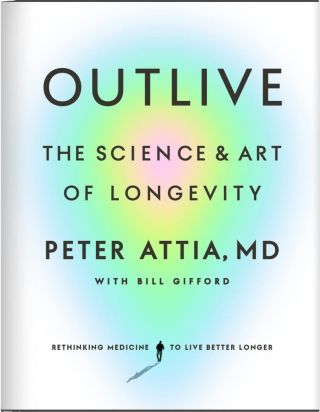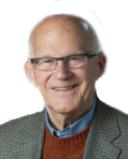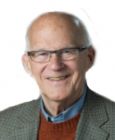Cognition
Thinking About Healthspan to Live Longer and Better
"Outlive" provides unique information and guidance to better health.
Updated August 20, 2023 Reviewed by Kaja Perina
Key points
- US medicine focuses successfully on treating diseases but fails badly in preventing them.
- US medicine is interested mainly in physical diseases.
- US medicine should focus on the psychological and social factors needed to prevent and treat diseases.
- Outlive operationalizes the most relevant physical and psychological features to achieve a healthier life
Outlive: The Science and Art of Longevity by Peter Attia, MD, with journalist Bill Gifford, is the best book I’ve read for promoting one’s health.

Outlive is well-written, well-balanced, and makes no fantastic claims. Further, while providing clear guidance for achieving better health, Dr. Attia does not advise but, rather, shows a way to think about one’s own health. His idea is for each of us to set our own individual health plan, the one that works best for us, so we can live a healthier as well as longer life. He often illustrates this process by describing his own ups and downs in developing a healthier lifestyle.
Dr. Attia laments that mainstream medicine has made little progress over now many, many years in age-related diseases (chronic diseases). Why? Medicine has focused on treating health problems after they occur rather than seeking to prevent them or to intervene early enough in their course to prevent progression. Medicine’s present goal is simply to expand our lifespans a few years.
Instead, Dr. Attia avers it should address what he calls “healthspan.” The latter not only extends life but also provides a much healthier, disease-free, existence along the way—enhancing physical, cognitive, and emotional health throughout one’s lifetime.
As a physician, I appreciated Outlive because Dr. Attia presents an abundance of science not only to support his recommendations but also to provide an understanding of them. For example, in discussing body metabolism with reference to obesity and metabolic health, Outlive provides a welcome review of the biochemistry. For those interested in how evolution has impacted health, Dr. Attia provides in-depth explanations in several areas. He similarly provides a scientific background for cancer cell growth and all other topics in the book.
Here's a sampling of what you can expect in Outlive.
From the title of Chapter 4 (Centenarians: The Older You Get, the Healthier you Have Been), we learn a surprising fact. While genes account for only 20-30 percent of variation in lifespan, the older one gets the more important genes become. While older people with favorable genotypes still develop the same chronic diseases others do—cardiovascular disease, osteoporosis, stroke, and dementia—they develop them later, often by as much as decades.
If you’re like me, you’ve been inundated with health advice, sometimes more opinion than fact. With his exemplary scientific approach, Dr. Attia supports with evidence what many have tried for years to ignore while seeking easier, nonscientific solutions. For example, it’s calories that count. As Chapter 5 says: Eat Less, Live Longer—The Science of Hunger and Health. But he delves further to point out that we should supplement the BMI, which so many follow as a measure of weight, by measuring the equally predictive abdominal girth. Men, yours should be 40 inches or less; women, 35 inches or less—even if your BMI is normal. How does one reduce their protruding abdomen? Eat less carbohydrates and more protein, all the while reducing calories. Another revelation Dr. Attia supports with scientific facts: most of us eat far too little protein, perhaps misled by standard guidelines for about 50-60 grams per day; he says it should be double, even triple that amount.
Many won’t know that obesity does not equate with the health risk of metabolic dysfunction. One-third of the US population is metabolically unhealthy but not obese (BMI >30). So, if you’re not obese, you’re not out of the woods. At the same time, if you’re obese but not metabolically unhealthy, there’s no increased risk. Dr. Attia defines ‘metabolically unhealthy’ as 3 or more of the following: high blood pressure, high triglycerides, low LDL, central adiposity, elevated blood sugar. Better get out the tape measure and see if that protrusion of your abdomen exceeds 40 or 35 inches!
Dr. Attia also considers cancer and acknowledges it’s the hardest of chronic diseases to prevent because the bad luck of accumulated somatic mutations plays the greatest causal role. He cites the only modifiable risk factors: smoking, insulin resistance, obesity, and (perhaps) pollution. What to do? He discusses better early detection by widespread screening using the now controversial idea of whole-body MRI scanning on a regular basis and the hope that liquid biopsies (blood tests for cancer) will soon come to fruition. He makes the point that, while such widespread screening for prevention costs a lot, it will be far less expensive than waiting for the cancer to become manifest and then treating it.
One final example. Chapter 11 (Exercise—The Powerful Longevity Drug) articulates Dr. Attia’s single best approach to better health. If those in the non-exercising 77 percent of the population began a 90 minutes per week exercise program, it would reduce the risk of dying from all causes by 14 percent. He compellingly emphasizes his point: “It’s very hard to find a drug that can do that.” But, as elsewhere, he avoids the usual exhortations. Instead, he explains relevant scientific issues that improve with exercise and why that’s important, for example, how the maximum rate at which people can use oxygen increases with greater physical fitness. Did you know that poor cardio-respiratory fitness carries a greater risk of death than smoking? And that muscular strengthening exercises may be additionally just as health-promoting as aerobic exercises? As in his recommendations in other chapters, Dr. Attia goes into pertinent detail to indicate exactly how one can improve their physical fitness.
Equally cogent, incisive, and practical discussions of dementia, sleep, and medications populate the rest of the book. But, in its most riveting part, Dr. Attia’s discussion of the importance of emotional health will strike a familiar chord with many. He makes this especially clear by sharing his own personal travails.
All told, this book can benefit anyone interested in improving their or their family’s health. It provides information that goes well beyond present resources for health promotion. I highly recommend it.




